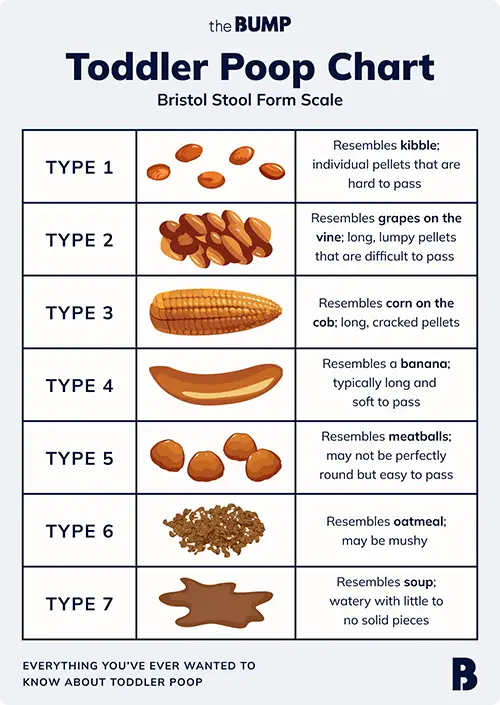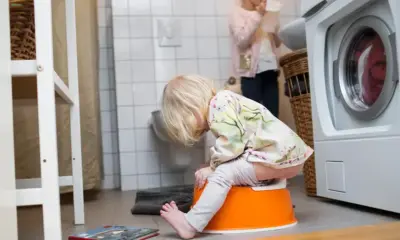Milestone
Toddler Poop: What Every Parent Should Know

Toddler Poop Parent Guide: Understanding Your Child’s Bowel Movements
Toddler poop might seem like an odd obsession, but parents know how often it impacts daily routines and overall well-being. Thankfully, the Toddler Poop Parent Guide is here to break it down clearly and help you handle the mess with confidence.
Why Toddler Poop Matters More Than You Think
Pediatricians and gastroenterologists understand how poop reveals much about a toddler’s health, digestion, and development. However, many parents still feel uncertain.
Dr. Vivien Nguyen from UCSF says poop remains a mystery due to how little we talk about it, especially with young kids. Still, it deserves attention, and the Toddler Poop Parent Guide exists to empower you.
How Often Should a Toddler Poop?
Most toddlers under four poop at least once every day. Some may go slightly less often, but not much less.
On average, toddlers poop 1.6 times daily, or roughly eleven times per week, says a 2023 Journal of Pediatrics study.
However, several factors affect frequency, including diet, hydration, activity level, and toilet habits. Emotional stress also plays a role.
If your toddler poops fewer than three times per week or has hard stool, it may indicate constipation and require intervention.
Common Toddler Poop Issues and What Causes Them
Constipation
Constipation occurs when poop becomes hard, dry, and painful to pass. It often results from low fiber intake, dehydration, or withholding behavior.
Once constipation starts, it can stretch the colon and create more difficulty pooping. Potty training and dietary changes often trigger it.
Doctors recommend sitting on the toilet after meals and increasing fiber, fluids, and routine to ease the issue.
Diarrhea
Diarrhea involves frequent, watery stool. Causes may include viral infections, food intolerance, medication, or fast digestion.
Prevent diarrhea by serving healthy fats, avoiding trigger foods, and staying hydrated. Call a doctor for severe or prolonged symptoms.
Toddler Poop Parent Guide: Poop Colors Decoded
Toddler poop comes in many colors, often harmless. But some hues may indicate something more serious. Let’s break it down.
Green Poop
Green poop usually results from bile or rapid digestion. Foods and infections can contribute. Thankfully, green poop rarely signals danger.
White or Gray Poop
This may suggest blocked bile ducts. However, certain medications or too much dairy may also lighten poop color.
Yellow Poop
Yellow is often normal. But pale yellow stool may rarely suggest liver concerns, especially with other symptoms.
Black Poop
Black poop can signal blood in the upper digestive tract. Still, foods like licorice or blueberries may cause dark stool.
Red Poop
Red stools may result from bleeding in the lower intestines. However, red foods and medicines often turn poop red too.
If stool color changes suddenly without explanation, contact your pediatrician. The Toddler Poop Parent Guide encourages proactive communication.

Toddler Poop Chart: Bristol Stool Form Scale
Most pediatricians use the Bristol Stool Form Scale to determine normal vs. abnormal poop textures.
- Types 1–2 = constipated: hard lumps, pebbles
- Types 3–4 = ideal: sausage-shaped, soft but formed
- Types 5–7 = loose: potential diarrhea or fast transit
Recognize patterns, and don’t panic over one abnormal movement. Watch trends over days.
How to Help Toddlers Poop Easier and More Regularly
Hydration Is Key
Water softens poop and promotes regular movements. Offer six cups daily. Add fruit slices or serve broth if needed.
Add Fiber to Their Diet
Fiber keeps poop soft. Fruits, veggies, oats, and beans work wonders. Add 5 to 10 to their age for daily grams needed.
Limit Cow’s Milk
Too much dairy sometimes causes constipation. Limit to 16 ounces daily unless otherwise instructed by your pediatrician.
Encourage Physical Activity
Active toddlers move their bowels better. Play, run, dance—any movement helps the intestines do their job effectively.
Use a Footstool
Foot support while sitting on the toilet improves posture and makes pooping easier. Toddlers need that ergonomic help.
Create Calm Potty Time
Rushing can backfire. Calm, unhurried bathroom time supports better pooping habits. Sing songs or read a book while they sit.
Offer Positive Reinforcement
Celebrate small wins like sitting on the potty. Stickers, praise, or treats can reinforce successful behaviors and reduce anxiety.
Add Fun Elements
Make potty time fun. Bring toys, play music, or read favorite books while your child tries. Consistency will improve results.
Follow Medical Advice
When needed, stool softeners or laxatives can help. Always consult your doctor before giving any medications, including over-the-counter products.
When to Call Your Pediatrician About Toddler Poop
Sometimes poop concerns need expert help. Reach out if your toddler:
- Poops fewer than three times per week
- Has painful or overly large stools
- Soils underwear or holds in poop intentionally
- Passes bloody, black, or white stools
- Complains of stomach pain regularly
- Shows signs of dehydration or weight loss
Early intervention prevents complications. Don’t wait to discuss toilet troubles. Trust your gut and seek guidance.
Toddler Poop Parent Guide: Final Tips and Takeaways
Remember, poop reflects much more than just digestion. It mirrors overall health, diet, emotions, and developmental readiness.
Stay proactive, and track poop patterns weekly. If something seems off, seek help early. Addressing issues early prevents them from growing.
Potty talk might feel awkward, but it’s crucial. With this Toddler Poop Parent Guide, you have reliable tools to support your child’s bowel health.
Explore More Family Health Insights
Stay informed and confident about your child’s wellness journey. Explore more parenting tips and toddler guides right here on this website.












